
Introduction
Those knowledgeable of the political economy recognize that US “democracy” is far from pure. BlackEconomics.org has highlighted many times the sway—near total control even—that oligarchs and plutocrats and their enterprises have over the political economy. For example, the airline industry reflects and projects inordinate power. We will discuss this power below as we explore how airlines can use their power in near untethered fashion to exploit Black Americans economically. You will see that the government is in full support—as it has been in so many ways and at so many times—of such economic exploitation of some of the nation’s least of these. We can only hope that Black Americans will consider this analysis and that each one of us will do all that we can to halt such exploitation and call the US Government to task concerning the airline industry.
De-Dignification
Before analyzing Black Americans’ relation- ship with the airline industry, let us consider how the US Government is collaborating with airlines to de-dignify Americans for its own benefit and for that of the airlines.
Last week, we traveled by air and catalogued certain conditions at an airport. But our travels over the past two decades only substantiate the observations recounted here. First, many Americans dislike that we are herded like animals by TSA (Transportation Security Administration) officials. Second, there is a disconnect between what we are told and what we endure. We are told that AI (artificial intelligence) and technology can solve all problems. Yet, we see little-to-no use of technology and AI to solve the problem of ensuring security and safety in the airline industry in an efficient manner that is traveler friendly.
What we know is that airlines employ technology and AI to improve their bottom lines, and we will return to this point in a moment. But it is puzzling that the US Government has failed to employ technology and AI in widespread fashion to make the travel experience more comfortable for citizens and visitors? For example, travelers’ dignity is removed and abused as we undergo the TSA checkpoint ordeal. We are herded through mazes like rats in a scientific experiment. We are prodded and cajoled in harsh and loud tones as we are directed hither and thither to ensure that the security process is time efficient. We are made to undress in full public view, sometimes embarrassingly so. But why?
Before answering the question, recognize that TSA and other US Government agencies assess the effectiveness and safety provided by TSA. They know that testers have proven repeatedly that TSA fails to identify and capture prohibited and dangerous items.(1) Besides, while the purpose of TSA is to prevent harmful items from reaching airplanes, those in the know are aware that when, and if, terrorists decide to strike, they have many other channels through which to reach their target and deliver their horrific message.
But why has technology and AI not replaced TSA? The answer is that, while TSA’s objective has always been to signal to the American people that the US Government was/is doing something to ensure our safety after 911, the US Government’s objective was to satisfy business interests and keep the unemployment rate down. No doubt about it, TSA spends a bundle to compensate those working stiffs who order us around, check our identification and boarding passes, shove bins through scanning machines, and seemingly determine that there are no weapons of mass destruction among our personal items in our carryon bags. But TSA also spends a bundle on: Uniforms and weapons; the apparatuses that form the mazes through which we walk; podiums and chairs on which TSA officials sit; communications infrastructure and equipment used by TSA officials; the belts and bins that move our belongings through scanning devices; and the scanning devices themselves.(2,3) Business is getting fat like a rat in a cheese factory because TSA exists.
But it goes further and deeper than that. As already noted, the airport security protocols are de-dignifying. This result is consistent with government’s need to ensure that average Americans feel unempowered and unwilling to do anything to express their political economy sentiments except through passive voting. Given a US population of over 330 million, the government can ill-afford to have an empowered population challenging the whims and desires of oligarchs and plutocrats that control it. Combine that perspective with the seeming inability of government to control drug trafficking (which keeps us unconscious of, and blurs, our reality), mass murders that instill fear of movement, and actions of a militarized police force, and you can see the nation moving increasingly toward a police state where “democracy” is just a buzz word that carries almost none of the connotations inherent in the etymology and definition of the word.
A logical question is: If the US Government knows that live TSA agents are unable to ensure security perfectly, how much worse or better can technology and AI perform? Given cameras, sensors, scanning devices, other devices, and AI, it should be possible to employ technology to perform security checks as successfully—if not more successfully—as live TSA agents. The problem is, if such technology and AI were to be employed, then some TSA agents would be released from their employment. So, the TSA farce continues at our expense.
Clearly a technological system could be developed that would produce a level of security consistent with that provided by live TSA agents. Such a system would not require us to arrive at the airport two or three hours in advance of our departure (time is money), and that would not impose such de-dignifying procedures on Black and White Americans alike who, in many cases, have almost no choice but to fly.
Economic Exploitation
Now turn to a key objective of this essay, which is to focus on economic exploitation of Black Americans by airlines. How does it work, what is the extent of it, and what can we do about it?
As we analyze these questions, it is important to keep a very important fact in mind. That is, given Black Americans’ income and wealth status in the country, we enjoy airplane rides less than other racial/ethnic groups.(4) Consequently, if we are not experienced at performing searches for and purchasing products with numerous features from price discriminators that use an AI-enabled (algorithmic) technological system that causes us to purchase at or near our maximum “willingness to pay” (WTP) price, then it stands to reason that we may be exploited economically.(5) Therefore, it is our hypothesis that, all else being equal, Black Americans pay a higher price per quality-adjusted mile of flight than other racial/ethnic groups in the country. So that is how it works.
The extent of it is not well known by those outside of the airline industry. What we know from existing research is that firms use AI (algorithmic)-enabled price discrimination to determine consumers’ willingness to pay (WTP). Consumers are hurt most in this scenario when their demand or preference is inelastic and when their decision-making is clouded by misperceptions We have already argued that due to Black Americans’ relatively less frequent use of airlines (i.e., we are less experienced consumers of the service), we are likely to misperceive the nature of a fair price.(6) Also, realize that our preferences, as expressed through inelastic demand, are quite evident when we book flights on dates near the departure date and reflect significant (undriveable) distances in our destinations. However, our research has not identified airline ticket sales databases by race/ethnicity; therefore, we cannot estimate statistically the extent to which Black Americans are exploited economically by airlines. Moreover, the algorithms used by airlines to set prices are essentially “black boxes” to those outside of the industry and knowledge is not comprehensive of the variables used to impose maximum WTP prices. Nevertheless, we know that technology, buttressed by AI, enables airlines to price discriminate and they do so at will. The ideal state for any enterprise is to have price discrimination power because it ensures that the enterprise can impose higher prices on selected customers and bolster their bottom line.(7,8,9)
But it may go much deeper than that. Given that airlines can use “big data” to estimate customers’ race/ethnicity (using available information or correlates of race/ethnicity) and that their more lucrative and frequent customers (non-Black Americans) prefer to segregate from Black Americans, the airlines can use their estimates of our race/ethnicity to manipulate where we sit on planes (often relegating us to what are considered “bad” seats (irrespective of the prices that we pay)). Accordingly, we suffer the inconveniences associated with those “bad” (back of the plane or near restrooms) seats. In other words, the quality-adjusted price that Black Americans pay to fly is likely higher than prices paid by non-Blacks, and we likely receive the worst flight experience.(10)
How do we prevent this economic exploitation?
Consider the following six strategies:
1. Do not fly unless it is clearly economically advantageous.
2. If travel is discretionary, then travel during non-peak seasons and book early.
3. Intertemporally, use multiple online “shopping and withdrawing without purchasing” actions to “prime/train” AI algorithms to compute lower WTP prices than would otherwise be derived by airlines.(11)
4. If, in fact, race/ethnicity or their correlates are used to price discriminate, then avoid booking from locations that are identified as Black American areas of influence, and otherwise sanitize personal data to avoid signalizing Blackness.
5. Enroll in memberships that enable the use of airline miles to acquire discounted airline tickets.
6. If by chance you find that price discrimination is egregious, then complain to airline companies and to your political representatives. Request that the latter explore the fairness of AI-enabled price discrimination based on race/ethnicity or their correlates that is evidenced by outcomes; i.e., the prices paid by Black Americans are higher than prices paid by non-Black Americans that reflect similar characteristics.(12,13)
Conclusion
What we and the airlines know is that a rich literature shows that Black Americans face higher prices than most non-Black Americans on almost all “big ticket” goods and services in the US. Also, we know that this outcome persists even after government intervention and the assessment and imposition of penalties against those guilty of charging higher than fair prices. In addition, we know the history of airlines and how they have persistently modified their products, services, and pricing to extract more receipts from customers: e.g., elimination of complementary meals; reductions in seating space; and initiation of fees and charges for what were formally complementary services, such as checked luggage.
This says nothing about reductions in their costs by eliminating certain live customer assistance by telephone services. Therefore, a “no brainer” conclusion is that bottom-line-driven airlines would not be reticent nor hesitant to exploit economically customers that are vulnerable. We have shown here that Black Americans are likely to be among the vulnerable.
In combination, the de-dignification of Black Americans during air travel and the likely economic exploitation of Black Americans by airlines lies before us. It is up to us to recognize it for what it is and then to conclude that “we are tired and sick and tired” and “we aint gonna take it anymore.” Then we should respond with appropriate actions—some of which are described above. All of this seems to be a very relevant consideration as we near the most popular and traveled holidays of the year.

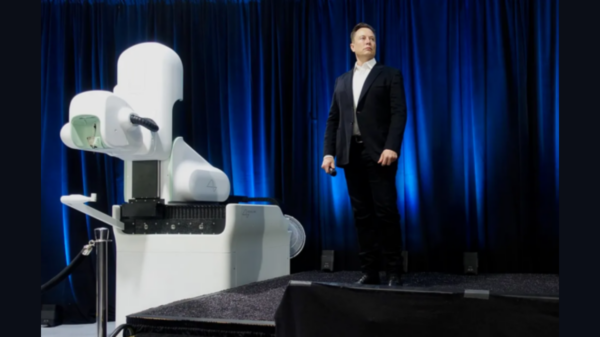
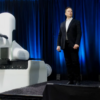
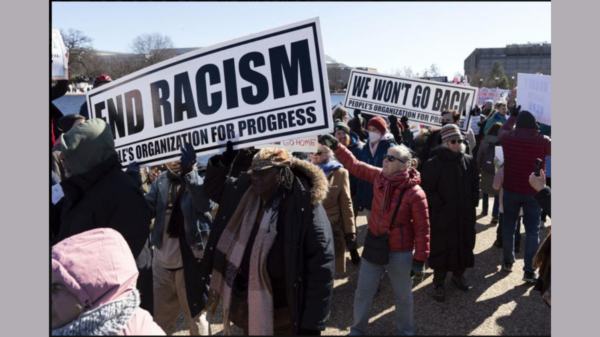
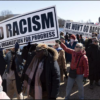
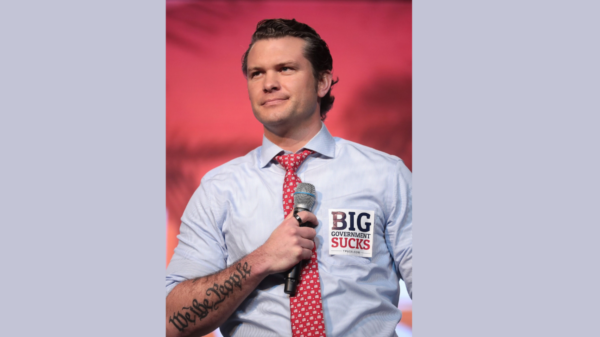

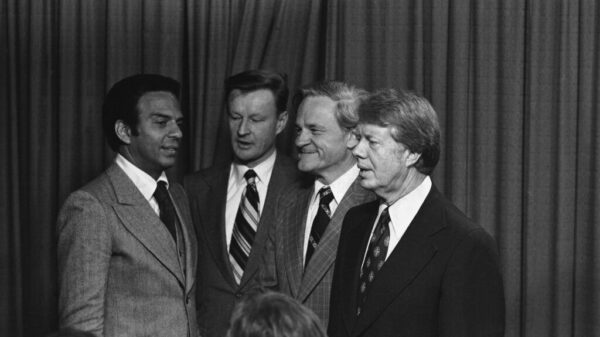
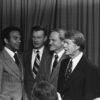
You must be logged in to post a comment Login